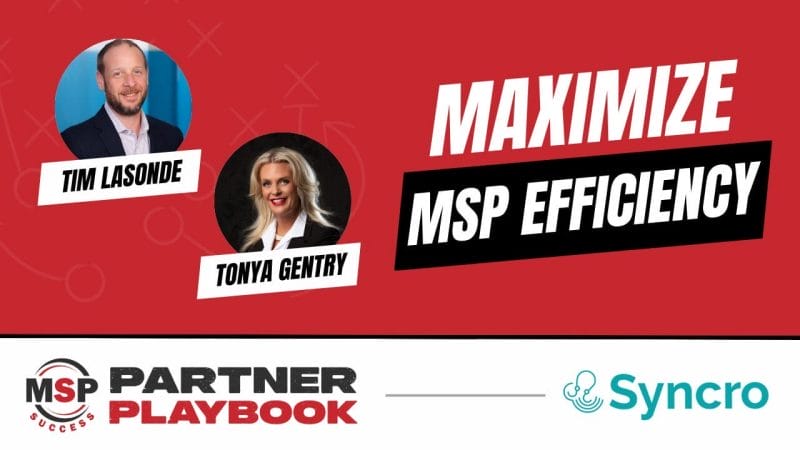Tax season comes around once a year, but all business owners should treat tax management as a year-round obligation, keeping tabs on revenue, payroll and expenses to avoid nasty surprises when the dreaded April 15 filing deadline arrives.
As the end of 2023 approaches, if you haven’t started your tax planning, you’re probably already behind. Right now, MSP owners should be reviewing their books for accuracy, says Rayanne Buchianico, owner and founder of ABC Solutions, which provides accounting and PSA consulting services for MSPs.
Like any other business owner, MSPs should have a tax-planning strategy to avoid common pitfalls, such as missing tax credits and deductions or incurring penalties. Even an experienced accountant won’t be able to minimize your tax burden if your bookkeeping is inadequate.
“Too many business owners wait until the year-end for their accountant to tell them what their tax liability is,” says Gary Pica, founder and president of Kaseya company TruMethods, a consultant to MSPs. “You need to plan for tax management all year round. This means you understand all of the levers and can monitor your tax position through the entire year. This allows you to make tax-advantaged decisions at all times.”
MSP owners should have a proactive approach to tax management by taking what they learned from their previous year’s tax planning and applying it the following year, he says. Without proper planning, the government becomes a “40% to 50% partner in your business, depending upon where you live,” he warns. Pica says his views on tax management are a result of many years of running a business. MSPs should seek advice from professionals for their specific business tax requirements.
Your Year-End To-Do List
As autumn fades into winter, MSP owners should be reviewing all their numbers, says Pica. “All MSPs review their financials on an accrual basis, but most pay taxes on a cash basis. You need to generate an accrual-to-cash conversion to see what your current and projected tax liabilities are. Then compare them to estimated payments you have made. The earlier you do this, the more options you have for tax management.”
There is a whole list of tasks MSP owners should complete before year-end, Buchianico says. They include making sure all bank and credit card reconciliations are current, reconciling loan balances to statements and recording interest expense. “Don’t forget your EIDL (COVID-19 Economic Injury Disaster Loan) statements,” she adds. “There is a ton of interest in those monthly payments right now. Be sure to capture them.”
Other tasks include reconciling investment accounts and reviewing your balance sheet and P&L statement. Monthly expenses in a P&L statement should be relatively even, says Buchianico. If some months show unusually high expenses, business owners should investigate the cause.
Cash flow also warrants scrutiny, she says. “Determine where your money is being spent and how much you are leaving in the business. This is a report banks and creditors use to determine how well cash is managed.”
Steps To Reduce Your Tax Burden
No taxpayer ever wants to send the government more money than they should – a compelling reason to maintain proper bookkeeping. Pica says MSP owners need to have a good handle on tax levers such as depreciations, R&D credits, retirement and profit-sharing contributions. Beyond that, owners should review any other business investments that may reduce taxable income, which can help fuel future business growth.
Practices that help reduce the tax burden include paying bills before the year ends and, if possible, postponing invoicing until next year. Taxpayers who use cash-basis accounting, as opposed to accrual, should consider prepaying expenses for next year and paying bills before year-end, says Buchianico. Other strategies she recommends include:
- Maximize your retirement plan contributions.
- Maximize benefits such as health savings accounts, flexible spending and profit-sharing.
- Prepare a bonus payroll check and pay the tax early to avoid a penalty.
- Purchase equipment and vehicles for use in the business.
Charitable contributions also help reduce the tax burden, but Buchianico cautions that you should make donations for the right reasons. “As a sole proprietor, partner or shareholder in an S corporation, charitable contributions are pass-through items and are only deductible on your personal tax return if you itemize your deductions on Schedule A.”
How To Avoid Mistakes
Common mistakes to avoid include trying to deduct entertainment expenses and life insurance premiums, Buchianico says. Meals are deductible at 50% and must be business-related. Also be sure to report mileage for all vehicles, she says.
To better position themselves for April 15, she recommends that MSP business owners share their numbers with their accountants and ask for a 2023 tax projection. “Now is the time to make year-end tax planning moves. The best way to do that is to know what your tax burden will look like. No one likes a surprise tax bill on April 10.”









